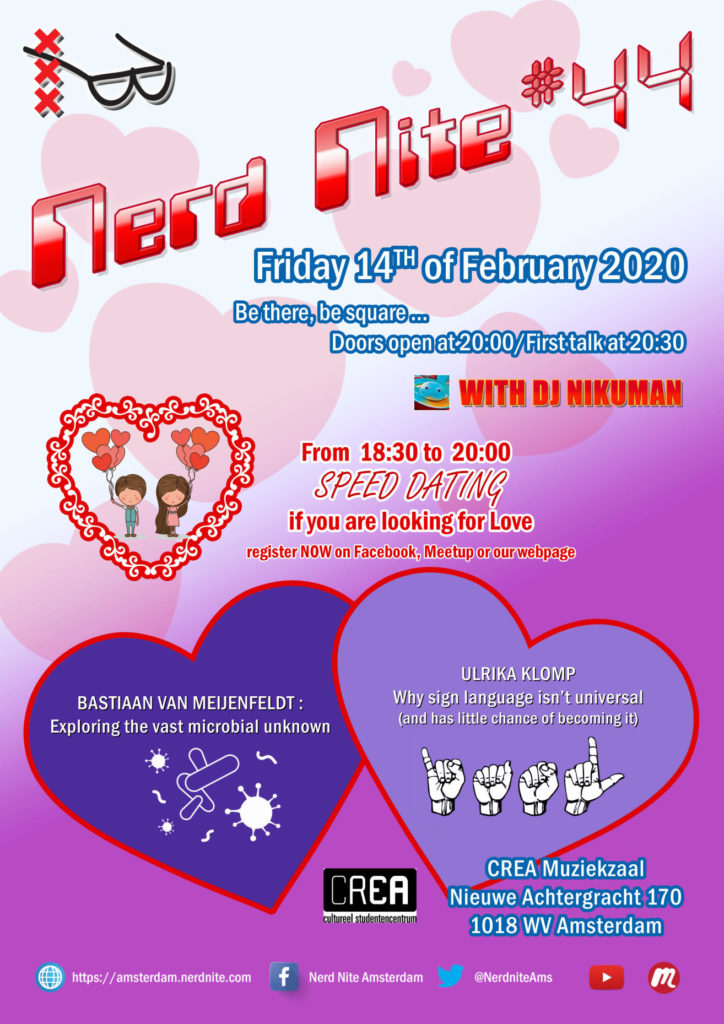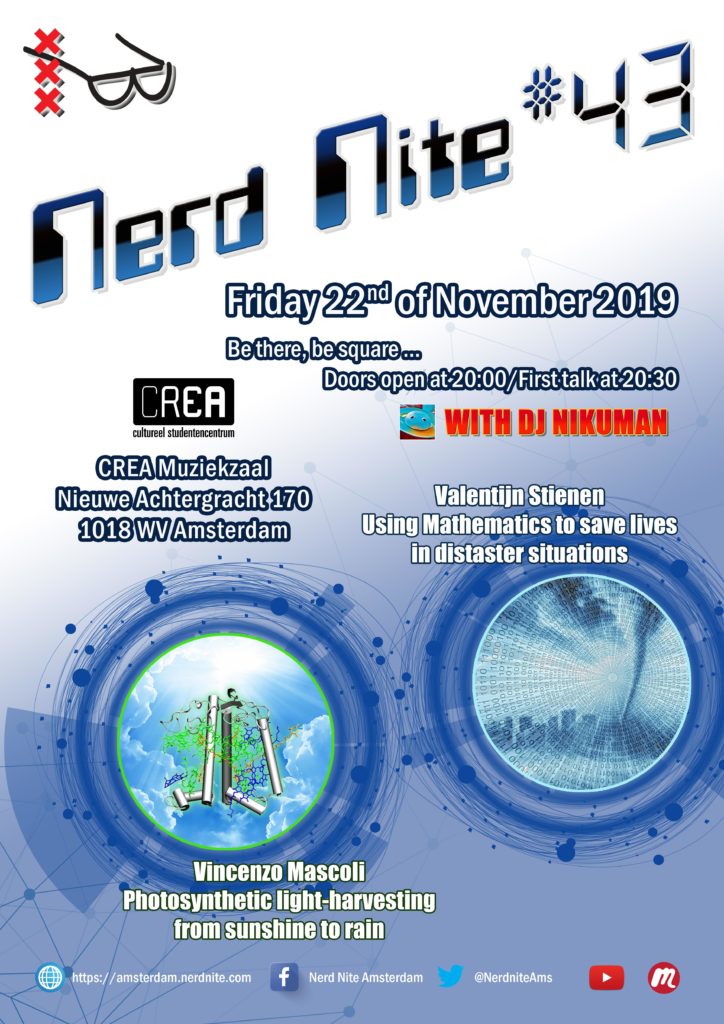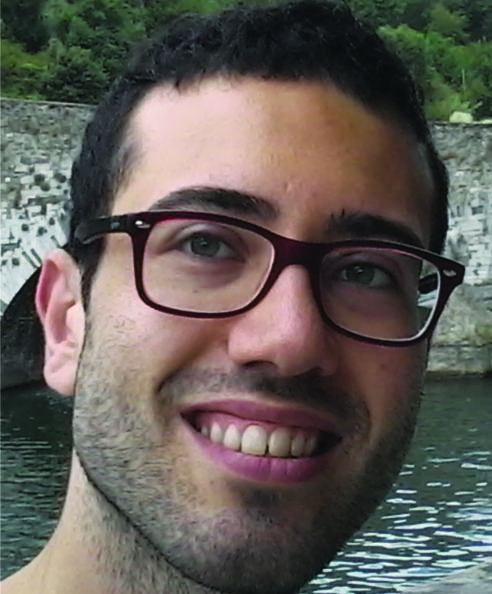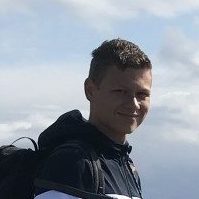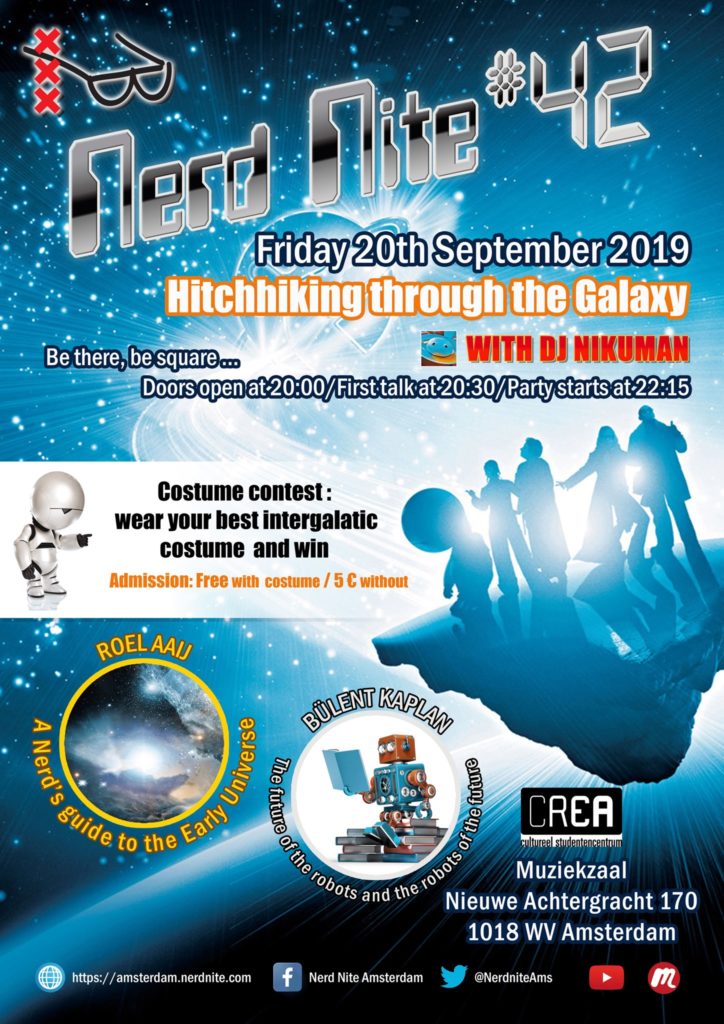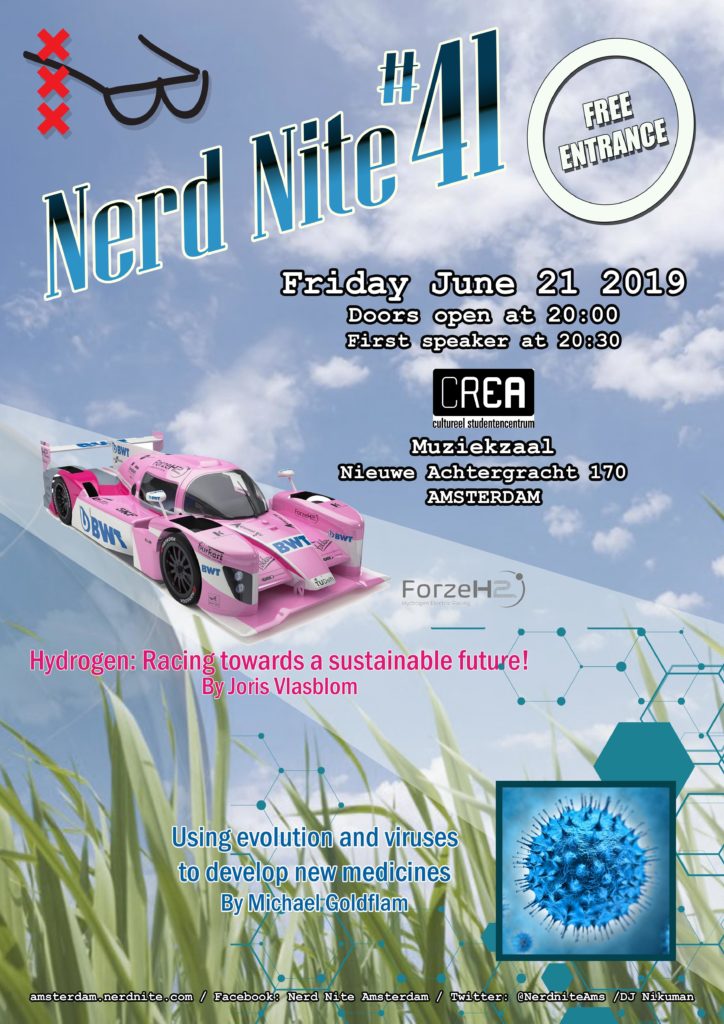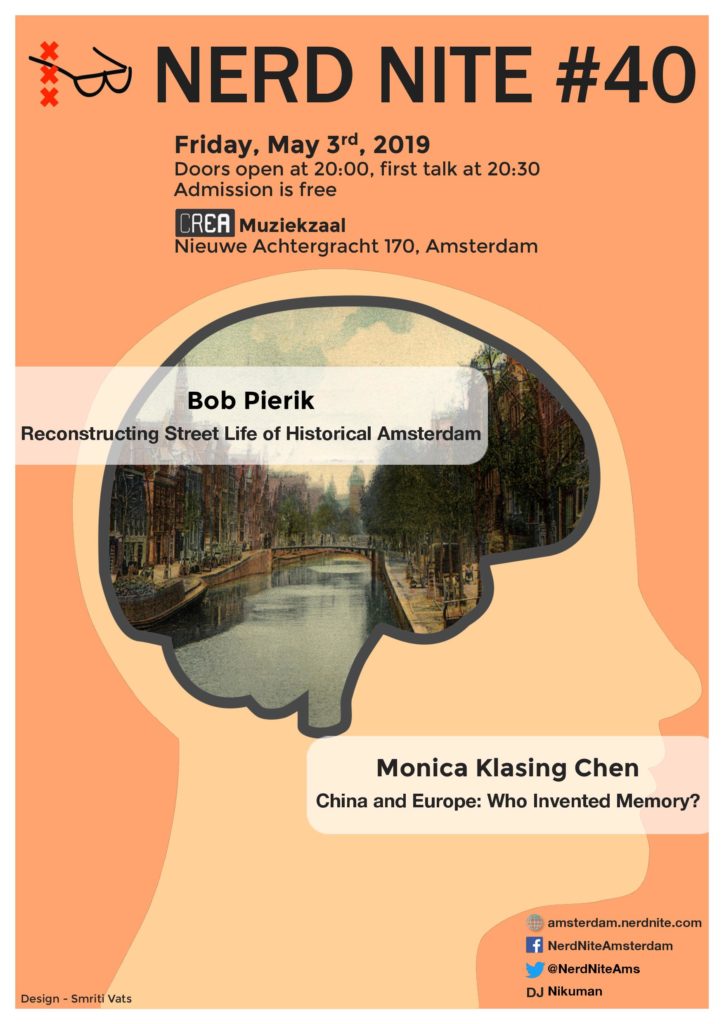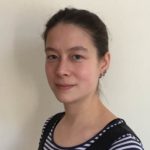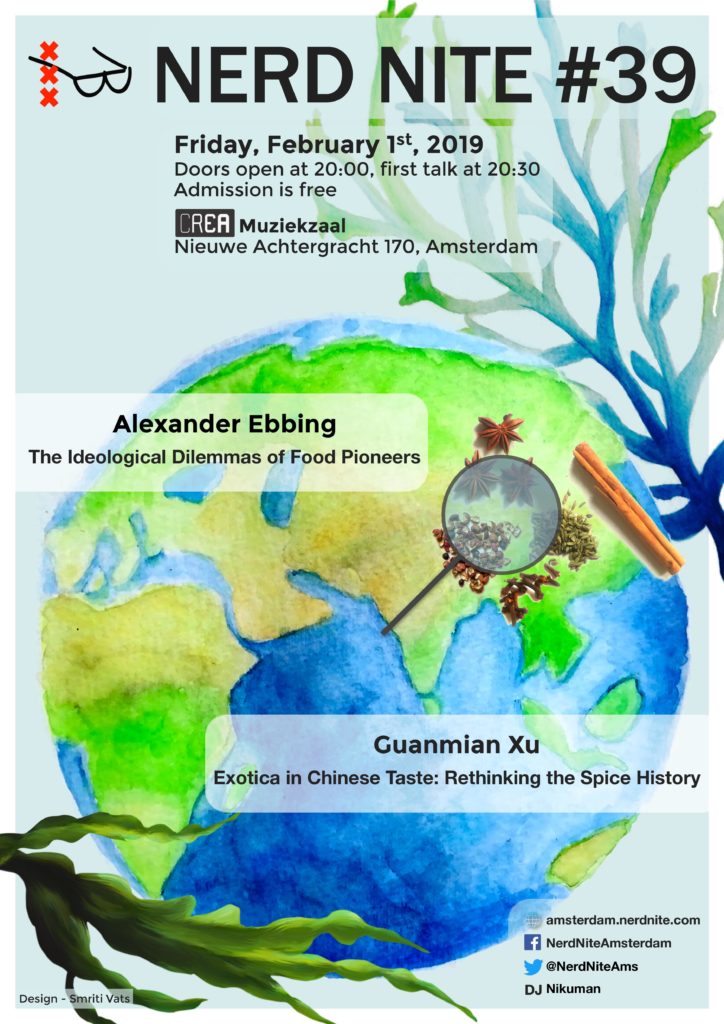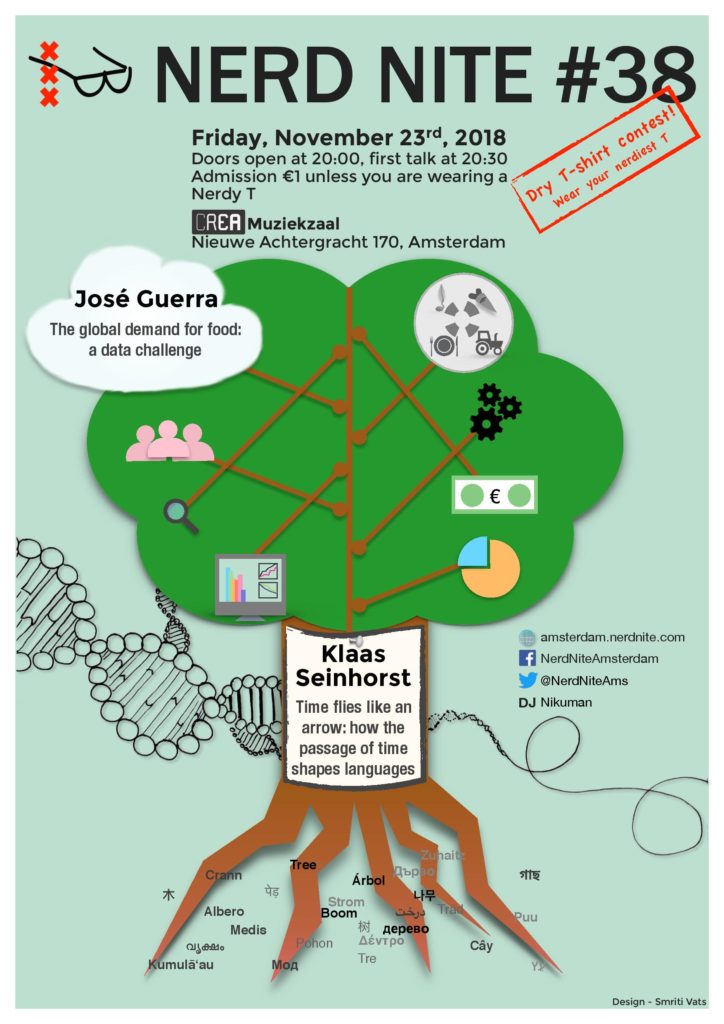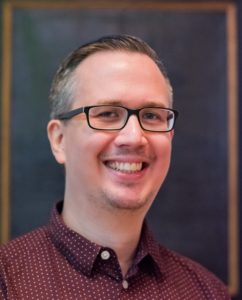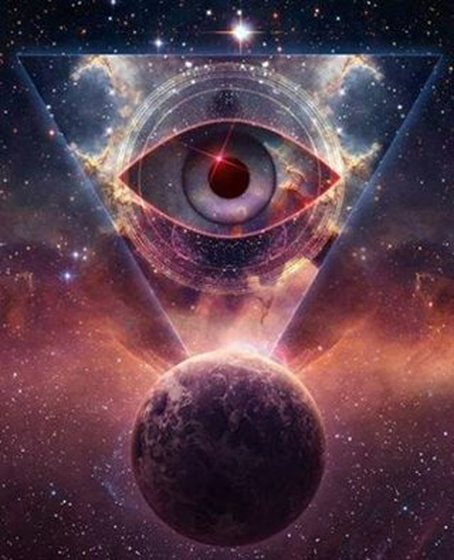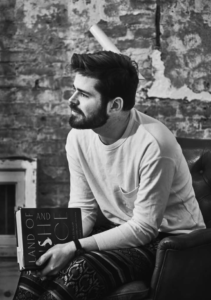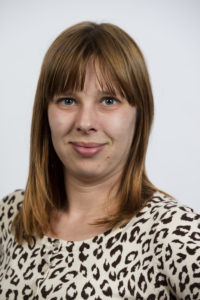Archive for the ‘Uncategorized’ Category
Nerd Nite 46
Online Nerd Nite is back! This time in Zoom!
First talk is by Caitlin Meyer : The moment of twoth: language rules when learning numbers.
The title of the previous NN was “How to count things…when counting is hard” – this time around we’ll go back to the elementary interpretation of that question. We’ll see that counting is basically always hard, but gets a little easier thanks to language. We’ll talk about how doing math with morphemes sets the foundation for doing actual math, and how smart mistakes like twoth and eated are as related as they are different. In doing so, we’ll learn how to be surprised about two super-human skills we take for granted, and raise some questions about what it means to learn or know something.
Second talk is by Julien Rossi : Sesame Street’s AI
In the quest of the AI that understands human language, we figured out that since computers are so good at understanding numbers and learning how they relate to each others, the best way forward is for humans to learn how to transform language into numbers. But not just any numbers, numbers that are machine-edible.We started by counting words, and ended up in Sesame Street while turning text into vectors.In this talk, we’ll see why Bert from Sesame Street saying ‘GPUs go brrrr’ is an accurate depiction of the latest developments in Natural Language Understanding.
Zoom linked will be provided in the coming days.
Be there and be square
Nerd Nite 44
In this Nerd Nite Valentine Special Edition, to fulfill all the New Year resolutions about relationships, we organize again the speed date for you.
The first talk will be about the beauty and the diversity of sign language, by Ulrika Klomp. Then, Bastiaan van Meijenfeldt will go with us to the Earth’s harshest places. How the microorganisms there can adapt their DNA to survive there? Come and find out!
Do not forget to sign up for the speed date on Valentine’s Date at http://tiny.cc/nn44-speeddate if you want to meet the nerd of your life!
Be there and be square!
A bit more about the talks:
-Why sign language isn’t universal (and has little chance of becoming it) by Ulrika Klomp
Sign language is beautiful. It’s so clear, it’s so simple, it’s so full of expression, and it’s so easy that it’s univer… wait. It’s not? WHY NOT?!” In this talk, sign language linguist Ulrika Klomp will show you that sign languages are not so simple at all, and talk about the various reasons why (sign) languages differ from one another. She takes you through some facts and fiction, showing the urgency of documenting and investigating sign languages now, and what sign languages can teach us about the human language capacity in general. Oh, and that sign languages are, indeed, beautiful – in their diversity.
-Exploring the vast microbial unknown by Bastiaan van Meijenfeldt
Ever since the invention of the microscope we know that there is a world of biology on the tiniest of scales. Historically, our knowledge of microbiology has been driven by creatures that make us sick or that grow happily in the lab (or your fridge). The rapid development of DNA sequencing techniques now allows us to go to any place on Earth and discover what is living there, and what they are doing, without the need for lab-based cultivation. Let Bastiaan show you the microbial world through this new lens of environmental DNA. It turns out that most microbes that we find have never been seen before…
DETAILS:
Friday 14th February
Speed date from 18:30 to 19:30
Doors open at 20:00
First talk at 20:30
at CREA Muziekzaal
Nieuwe Achtergracht 170
1018 WV Amsterdam
Nerd Nite 43
Nerd Nite 43 will be about the most precious thing – life itself. Our first speaker Vincenzo Mascoli will share with us his fascination of photosynthesis, the source of life on Earth. But how does it actually work? Vincenzo will enlighten us with some surprisingly fast processes.
Our second speaker, Valentijn Stienen, is working on saving lives. After a natural disaster, the delivery of aid products, sent from depots, must happen as fast as possible. He will show us how he helps out humanitarian organizations using mathematical optimization. Do you want to get a taste of life?
Come on the 22nd of November and be there, be square!
DETAILS:
Friday 22nd November
Doors open at 20:00
First talk at 20:30
at CREA Muziekzaal
Nieuwe Achtergracht 170
1018 WV Amsterdam
Photosynthetic light-harvesting from sunshine to rain
By Vincenzo Mascoli
From greek phōs: “light” and synthesis : “putting together”, photosynthesis is performed by plants, algae and bacteria and is the main supplier of energy to the biosphere as it converts sunlight into chemical energy. Have you ever wondered how these organisms deal with a sunny or cloudy sky ? Not only do they need to harvest light as efficiently as possible but at the same time photosynthetic organisms need to be able to dissipate excess energy, to avoid harm to their apparatus that will ultimately limit their growth. Vincenzo will unravel this “mystery” with us during his talk, as he will show which strategies these organisms use at the protein scale to catch the best of the Sun.
Using mathematics to save lives in disaster situations
By Valentijn Stienen
When a disaster strikes, international assistance is often requested to help responding and recovering from it. Relief items are then sent as soon as possible to the affected regions from international hubs. But how should such an international network of hubs be organized, which cities/regions should hold a hub? Valentijn is the man to ask! Minimizing transportation costs and response times are two main performance indicators, but also the robustness of solutions plays an important role. Why? Let’s find out how Valentijn uses mathematical optimization to make a great societal impact, possibly saving thousands of lives!
Nerd Nite 42 – Hitchhiking through the galaxy!
With Nerd Nite 42, we will take you along for a hitchhike through the galaxy with two amazing guides, Roel Aaij and Bülent Kaplan and party until the end of the world. Wear your intergalactic costume to blend in and participate in the costume contest in-between the two talks!
Our first guide, Roel, will bring us to the birth of the universe where we will find out about the secrets of antimatter and search for dark matter. Bülent, our second speaker, will take us into the future with robotics: Will robots soon take over and rule us?
Come and join us with your costume on the 20th September to (maybe) find out the answer to life, the universe and everything! Be there, be square!
DETAILS:
Friday 20th September
Doors open at 20:00
First talk at 20:30
Party starts at 22:15
Free admission for costume wearers, else 5 euros
at CREA Muziekzaal
Nieuwe Achtergracht 170
1018 WV Amsterdam
The future of the robots and the robots of the future
By Bülent Kaplan
Robots are not coming, they are already here!
Nobody is expecting the Skynet to destroy humanity anytime soon but there is strong evidence that robots are replacing more jobs than they are creating. Are you sure that your job will be safe? Technology is accelerating at an exponential rate. What will happen when the robots outsmart us, humans? Advanced technology can play a key role solving the problems like climate change, ecological destruction and poverty however it will also create new challenges. What kind of a future is awaiting us and what role can we play in this rapidly changing game?
A Nerd’s guide to the Early Universe
By Roel Aaij
What happened just after the Big Bang? How did we end up with the universe we observe today? Where did all the antimatter go? What is dark matter? Scientists and engineers at Nikhef – the Dutch National institute for Subatomic Physics – try to answer these questions by working on High Energy Physics experiments and theory. Our speaker Roel Aaij will take you on a tour of some of these big questions about the (early) universe and where some of their (im)probable answers may be found. Are you ready yet to hear a gravitational wave?
Nerd Nite 41
Next Nerd Nite will be all about survival. We have attained longer and longer lifespans with better conditions of living, technology but also with medical help. But did you actually know that penicillin was found by mistake (Thank you!)? Michael Goldflam will show us how difficult it is to find new medicines and how recent scientific advances (Nobel Prize in Chemistry 2018!) allow to take control over evolution. Joris Vlasblom is also worried about our lifespan and that of Mother Earth. Did you already switch to renewable energies? Joris will present us a racing car to show us that hydrogen can be a viable alternative to “all-electric”.
Join us on the 21st of June for a better future, be there, be square!
DETAILS:
Friday 21st June
Doors open at 20:00
First talk at 20:30
at CREA Muziekzaal
Nieuwe Achtergracht 170
1018 WV Amsterdam
Using evolution and viruses to develop new medicines
By Michael Goldflam
Nature has made us what we are today in all our glory and enabled the diversity of life through the power of evolution. But what if we could take over and use evolution for our own purposes? Michael will show us how recent scientific advances allow to take control of evolution and use it as tool (for Good!) to address challenging problems like the development of a new medicine. The discovery of new medicine is a traditional “finding a needle in a haystack” dilemma, how do you identify which molecules could be useful? But don’t worry, Michael will share some ideas involving “hacking” biology using genetically modified viruses…
Hydrogen: Racing towards a sustainable future!
By Joris Vlasblom
The climate is changing, pole caps are melting, fossil fuels are depleting. This calls for a new way to power our lives, a more sustainable way. All-electric seems to be the current trend, but can it really deliver what it’s hyped up to be? Do we need a different energy carrier? Forze Hydrogen Electric Racing believes that hydrogen is needed to fully satisfy our energy demands. By building a hydrogen electric race-car they push fuel-cell technology to its limits and show the potential of hydrogen. Interested to find out how the (race) car of the future works and how hydrogen might power our lives in the future? Find out at Nerd Nite!
Nerd Nite 40
Do you still remember the phone number of your first date? Or did you suddenly recall your first kiss when you tried a strawberry chewing-gum? Our first speaker of this Nerd Nite Monica will tell us all about memories! By looking at Chinese and European memorization techniques, she will teach us not only how to create unforgettable memories but also how society thought about them in the past. With our second speaker Bob, local Dutchman, we will unravel the past of the common folk in pre-industrial Amsterdam. But this turns out to be more difficult than one would expect as information about ordinary people is often hidden in the scraps of history. Bob will show us how he merges these scraps using modern data science.
Take this trip to the past with us on the 3rd of May and be there, be square!
DETAILS:
Friday 3rd May
Doors open at 20:00
First talk at 20:30
at CREA Muziekzaal
Nieuwe Achtergracht 170
1018 WV Amsterdam
China and Europe: Who Invented Memory?
By Monica Klasing Chen
Monica will dig into the past on both sides of the globe to find out what people thought about the act of remembering. How did people describe this process, and where in the body did it take place?
So how did our counterparts in the analogue past go about creating unforgettable memories? What techniques did they use? Most importantly, what did Chinese and Europeans find worth remembering? Find out how central it was to have a good memory and what we can learn from the past!
Bio: Monica Klasing Chen is a PhD candidate at Leiden University. She researches the use of memorization techniques in the transmission of crafts. In her spare time she practices Chinese ink painting.
Bystander history: Reconstructing everyday life in the streets of early modern Amsterdam
By Bob Pierik
Amsterdam may feel small compared to metropolises with millions of inhabitants like New York, London or Tokyo. Yet, in pre-industrial times, Amsterdam was one of Europe’s larger cities at the time, and the largest city of the Low 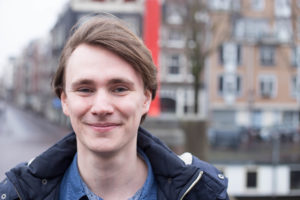 Countries! While there are extensive records on the city’s ruling families and their regent-patriarchs, the life of ordinary people is much more difficult to access. What actually happened in the streets of Amsterdam? This is what Bob wanted to know! Fortunately, he got help from new digital methods that rapidly open up doors into our urban past. The boundary between the social scientist that collects data and the historian that visits the archive has slowly been blurred. Let Bob take you through the streets of 18th century Amsterdam and show you how he is unearthing historical street cultures!
Countries! While there are extensive records on the city’s ruling families and their regent-patriarchs, the life of ordinary people is much more difficult to access. What actually happened in the streets of Amsterdam? This is what Bob wanted to know! Fortunately, he got help from new digital methods that rapidly open up doors into our urban past. The boundary between the social scientist that collects data and the historian that visits the archive has slowly been blurred. Let Bob take you through the streets of 18th century Amsterdam and show you how he is unearthing historical street cultures!
Bio: Bob Pierik is a historian torn between old stuff and new stuff. That is why he reads early modern manuscripts as .pdf and tries to train a computer to do paleography.
Nerd Nite 39
The knowledge we acquired over the centuries made us who we are today. For the first Nerd Nite of 2019, we will trace the delicious bread crumbs of the past and the future. With our first speaker, Guanmian Xu, we will travel to the far east where he will let us experience the spicy exoticism in China, often disappearing in the existing history of spices. Our second speaker Alexander Ebbing will project us into the future, in the middle of the impending survival crisis caused by global warming. He will show us how he contributes to solving this problem as a seaweed expert and food pioneer and what kind of dilemmas he needs to cope with.
Will you help shape our future? Come to CREA on the 1st of February and debate with your fellow nerds! Be there, be square!
The ideological dilemmas of food pioneers
By Alexander Ebbing
If you believe that things need to change in order to tackle the problems of the 21st century, then you also believe that certain changes have priorities over others. Especially with a deadline of only 12 years (IPCC) before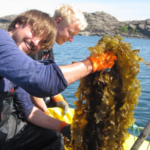 global warming reaches a critical value, one can understand that the decisions we take now will shape the faith of humanity. But what are the roads we can choose from? Which one can lead us to the best results? This ideological dilemma is present in all decision-making concerning our future and Alexander will dive deep into it with us using seaweed aquaculture as an example. As a seaweed pioneer, he will show us his road towards helping the planet including his struggles.
global warming reaches a critical value, one can understand that the decisions we take now will shape the faith of humanity. But what are the roads we can choose from? Which one can lead us to the best results? This ideological dilemma is present in all decision-making concerning our future and Alexander will dive deep into it with us using seaweed aquaculture as an example. As a seaweed pioneer, he will show us his road towards helping the planet including his struggles.
Bio: I am a marine biologist that have been working with seaweed for the last 6 years. During this period I have built seaweed farms throughout north-western Europe and was active in the breeding and propagation of kelp. Lately, I am doing my PhD where I try to domesticate kelp as a novel crop that can be used in aquaculture on sea.
Exotica in Chinese Taste: Rethinking the Spice History
By Victor (Guanmian) Xu
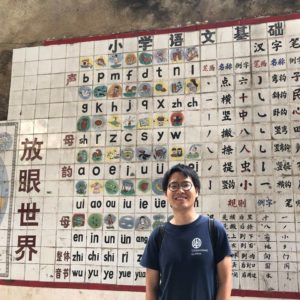 Television, computers, the internet, we live in an interconnected world. But globalisation is as old as history itself. When someone talks about global history, the historical study of globalisation, you might think of the exchange of commodities, people and knowledge.
Television, computers, the internet, we live in an interconnected world. But globalisation is as old as history itself. When someone talks about global history, the historical study of globalisation, you might think of the exchange of commodities, people and knowledge.
But did you know the exchange of tastes played a crucial role as well? Often our desire for exotic flavours has shaped history! Most people are familiar with the introduction of exotic foods,spices and beverages in Europe, but the rest of the world is often overlooked.
Let’s travel back with Victor from Mongol invasion till the Manchu conquest of China (1300-1800), tracking the changing tastes in China, you will be surprised how many exotic goods they introduced into their daily cooking! Maybe even something from your hometown?
Bio: Xu Guanmian (Victor) 徐冠勉 has been interested in the history of exotic plants and capitalism since around 2012 (before that year, he worked for a shipping company). He is now working on a research project about how Asian consumption of exotic plants (and animals) contributed to the making of the world as we know today.
DETAILS:
Friday 1st February
Doors open at 20:00
First talk at 20:30
at CREA Muziekzaal
Nieuwe Achtergracht 170
1018 WV Amsterdam
Nerd Nite 38
Are humans predetermined due to their genetics just like plants? Or does the environment molds us? Our first speaker of this Nerd Nite, Klaas Seinhorst, believes that genes cannot be the only answer when looking at the similarities and the evolution of our languages. He will present us a theory which, as it turns out, is working against a deep-rooted genetic idea used by linguists. Our second speaker, José Guerra, is more interested in data processing. With the pursuit of global food provision, he will show us how he can and must limit the immense amount of genomic data to obtain the ideal plants by not only considering biology but also time and money! Join us to discover more… and don’t forget to wear a nerdy T-shirt!
“Nerd”: noun, “ nerdy”: adjective. These are common things we need to learn for our language class. But have you ever wondered why unrelated languages seem to have a similar grammar structure? Linguists have come up with a theory called “Universal grammar” around the 1950s to explain this. More precisely, it assumes that we are all born with a genetically specified language ability. But what if grammar evolved through necessity? Klaas will talk about such an alternative hypothesis: that the similarities are due to the function of a language (communication) and their limitations, our cognitive capacities. And it turns out that this hypothesis can even be applied in other fields! Discover more about the evolution of languages with Klaas’ help!
Bio: Klaas Seinhorst always liked learning languages, but somehow decided to study Urban Planning when he went university. He soon saw the error of his ways, and circled back to languages: he got his BA and MA in Linguistics and is now working on his PhD at the University of Amsterdam. In his spare time, he likes to play the piano, explore new places, and do as many escape rooms as humanly possible.
By Jose Lima Guerra
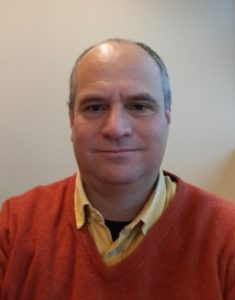 Data, data, data: it’s everywhere! With technology we create new data and find existing data. Did you for example know that the so-called Next-Generation Technology generates an unrivaled explosion in the amount of genomic data? A good thing of course, but also challenging: how to select the best characteristics, also known as features, and at the same time minimize the number of features? Jose Lima Guerra has a passion to solve these challenges by analyzing these endless data sets to find a very efficient feature selection system to identify the minimum amount of information needed. And for a great cause: he will explain how he focuses on optimizing plant crossings to meet our future global food demands in light of the growing population, limited land and global warming. Hungry for more? Come to Nerd Nite and satisfy your hunger!
Data, data, data: it’s everywhere! With technology we create new data and find existing data. Did you for example know that the so-called Next-Generation Technology generates an unrivaled explosion in the amount of genomic data? A good thing of course, but also challenging: how to select the best characteristics, also known as features, and at the same time minimize the number of features? Jose Lima Guerra has a passion to solve these challenges by analyzing these endless data sets to find a very efficient feature selection system to identify the minimum amount of information needed. And for a great cause: he will explain how he focuses on optimizing plant crossings to meet our future global food demands in light of the growing population, limited land and global warming. Hungry for more? Come to Nerd Nite and satisfy your hunger!
Bio: Animal breeding, logistic regression, risk estimation, parameter estimation… José Lúcio Lima Guerra has a great passion for statistics. With a long journey in academica in Brazil and USA, his passion in statistic brought him to the Netherlands to be a biostatistician. He is currently a manager at Enza Zaden (EZ), a vegetable-breeding company, that selling the seeds of more than 1,200 vegetable varieties all over the world. He has a very busy and fulfilling life.
DETAILS:
Friday 23 November
Doors open at 20:00
First talk at 20:30
at CREA Muziekzaal
Nieuwe Achtergracht 170
1018 WV Amsterdam
Nerd Nite 37
Are you someone who counts the number of blue bikes crossing you or who waits until the clock shows a full minute before starting a new task? You are not alone in this, as our first speaker also has a slight obsession over mathematics… to the point that it ru(i)ns his life! Donovan will lead you along in his labyrinth of numbers. Is this obsessive behavior only possible if you have psychiatric problems? Our second speaker, Afra knows all about this. She will enlighten us about common misconceptions in psychiatry (which even nerds have!) and how people often diagnose themselves with psychiatric illnesses. Join us for the psychedelic last Nerd Nite of season 7 on the 8th of June. Be there and be square!
How mathematics ru(i)ns my life
By Donovan Carroll
Inhuman force, laser eyes, flying in the air…Who never wished to have some superpowers? At Nerd Nite 37, you have the rare opportunity to meet Mathman, aka Donovan Carroll in his secret identity. Donovan has always been “good at math”, but only recently started developing his math sight and exploring his superpowers to make the world a better place. Being a superhero is not always rainbows and sunshine: driven by a constant mathematical curiosity, Donovan has been put into some interesting situations – both good and bad – which have changed the way he approaches life. Come to Nerd Nite and discover some of the experiences of our superhero and be blown away by his abilities!
Common misconceptions about psychiatry
By Afra van der Markt
Do you know somebody who diagnosed himself and/or others with OCD, autism and other psychiatric illnesses? This could be due to the many misconceptions the “general population” (and probably you too, nerds!) have about psychiatry. People who work in the mental health sector often have to answer questions like whether they can read people’s thoughts and have to explain again and again what the difference is between psychiatry and psychology. Do you think you already know all misconceptions? Come and make sure you don’t miss a single one by listening to Afra!
DETAILS:
Friday 8 June
Doors open at 20:00
First talk at 20:30
at CREA Muziekzaal
Nieuwe Achtergracht 170
1018 WV Amsterdam
Nerd Nite 36
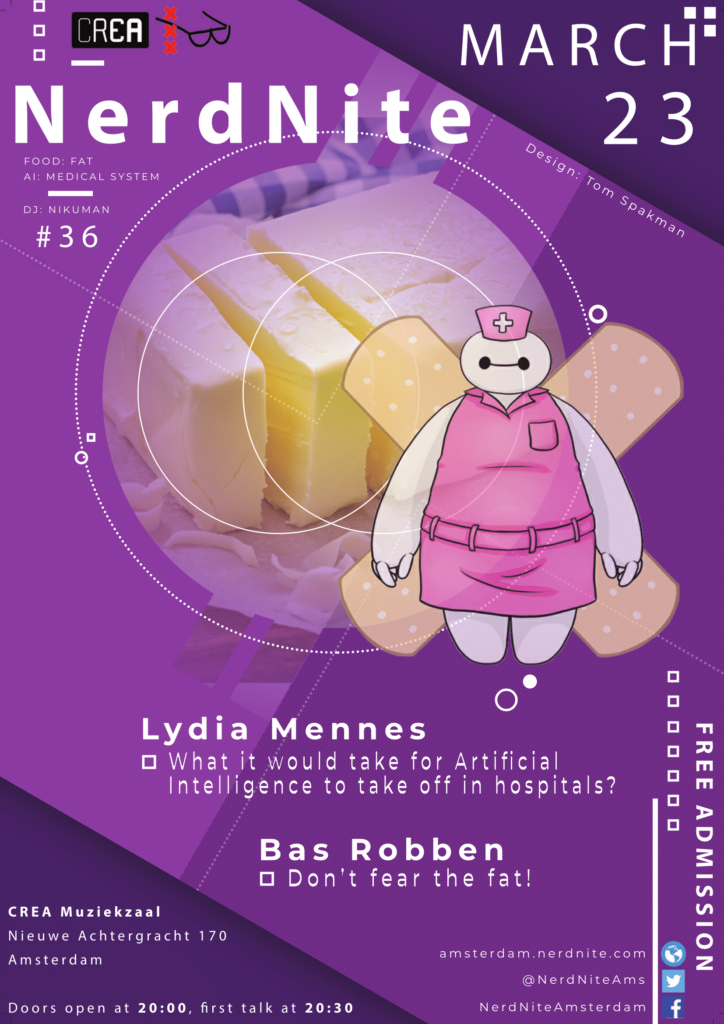
Next Nerd Nite will lead you on a culinary travel just to end up in the hospital! When cooking, do you think of skipping the oil or the butter? Come and listen to Bas Robben to discover the yummy culinary secrets of fat and how it makes the food so delicious! And worry not, as after overindulging, Lydia Mennes will take you to the hospital! In a time where neural networks and Artificial Intelligence are omnipresent, hospitals are so messy with your data that we need AI to make sense of the records. Discover why and how AI will be able to determine the future of hospitals and our healthcare system. Join us at Nerd Nite 36 on the 23rd of March. Be there and be square!
DETAILS:
Friday 23 March
Doors open at 20:00
First talk at 20:30
at CREA Muziekzaal
Nieuwe Achtergracht 170
1018 WV Amsterdam
Fat is the key in every cuisine, but why are so many people scared of it? Do you feel guilty after indulging in food prepared with/in fat? Don’t be! Bas will convince you to add more oil, lard, ghee and butter in your pan and present you the three main functions of fat in cooking: as a core ingredient, a cooking medium, and a seasoning. Conserving, deep frying, infusing, baking and confit are the techniques you should use to make your food even more delicious. In the end, you’ll know why pasta tastes better in a restaurant, why deep-frying is such an excellent cooking technique and how to step up your deep-frying game and build a fatty larder full of flavors at home!
